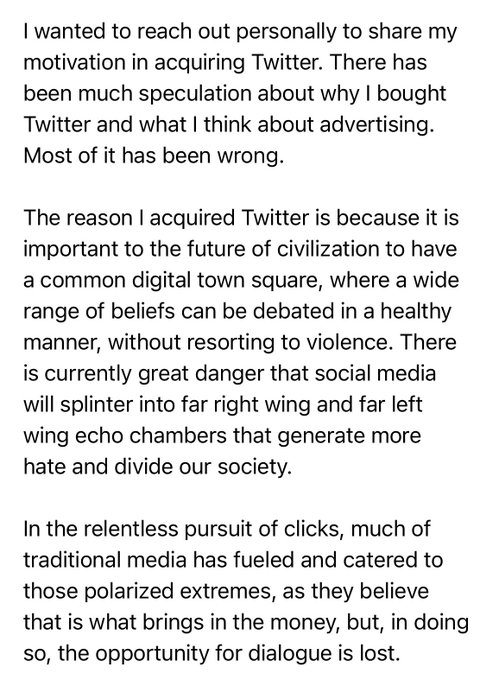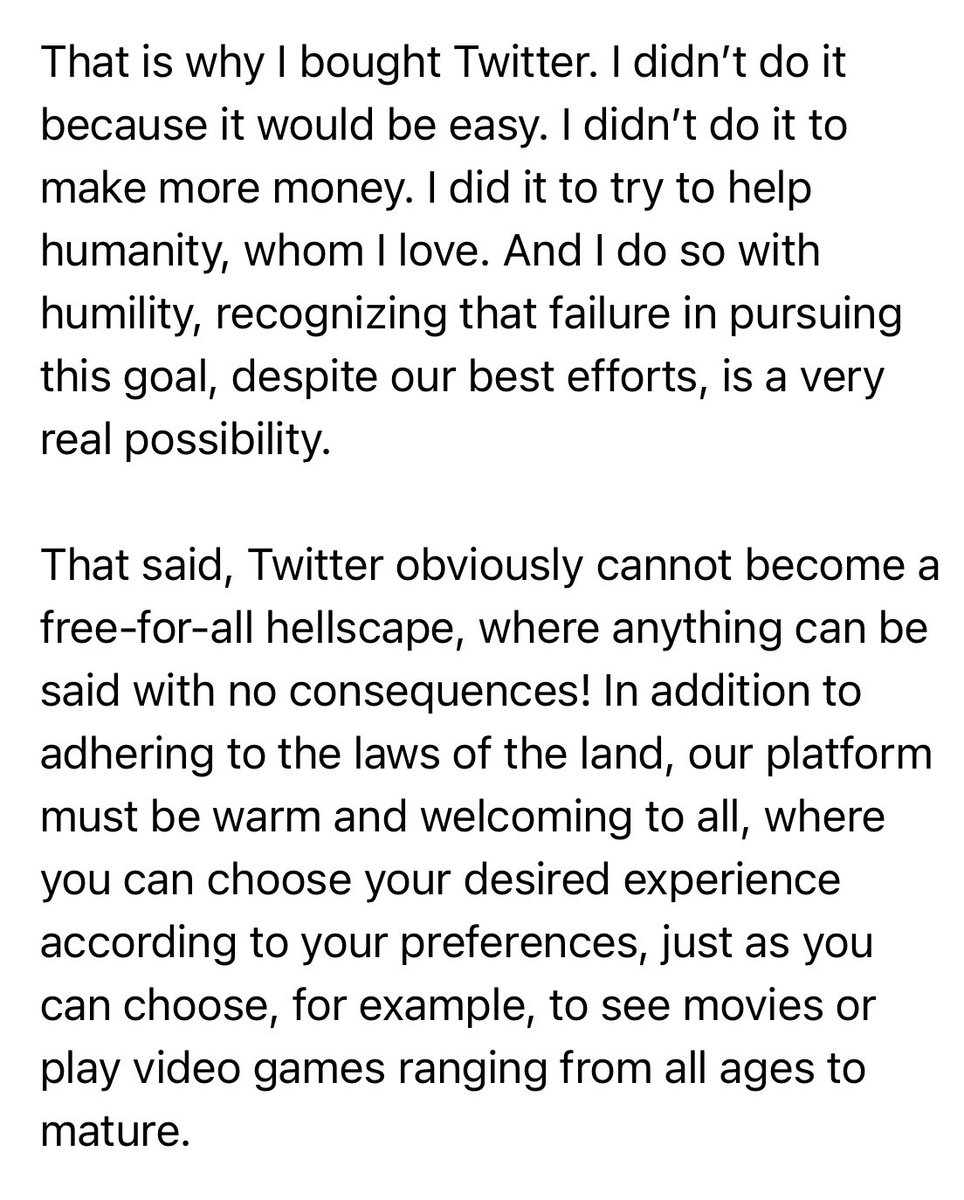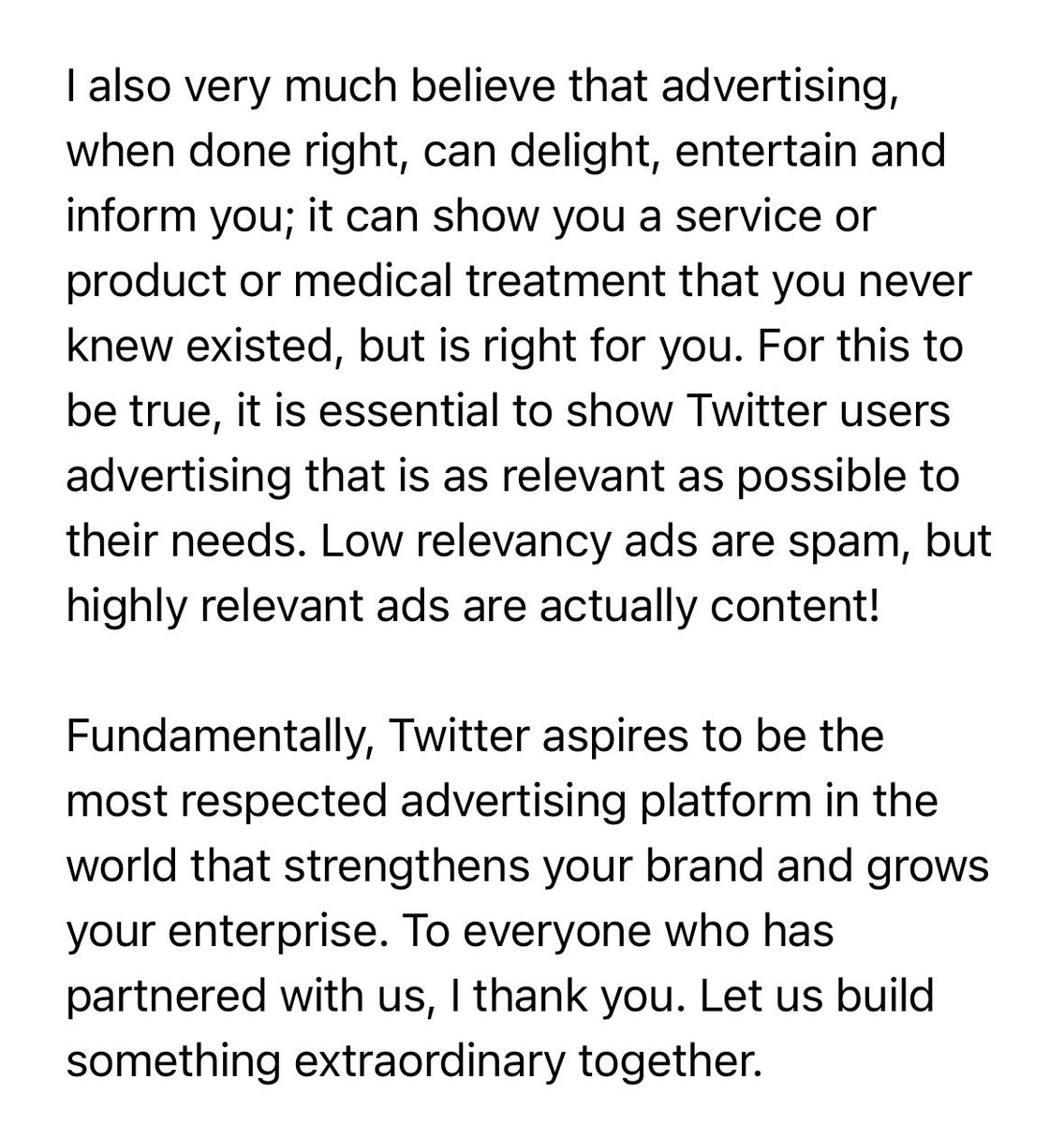
Hello all. Here’s Digitally Literate, issue #348.
Please subscribe if you would like this newsletter to show up in your inbox. Reach out and say hello at hello@digitallyliterate.net.

Carl Jung – The Power of Knowing Your Dark Side
Among the central concepts of analytical psychology is individuation—the lifelong psychological process of differentiation of the self out of each individual’s conscious and unconscious elements. Carl Jung considered it to be the main task of human development.
In this video, we explore Carl Jung’s concept of the shadow and how to integrate it into our personality to attain wholeness.

By Buying Twitter, Elon Musk Has Created His Own Hilarious Nightmare
Well…it happened. Elon Musk (and a consortium of much smaller investors) now owns Twitter. Musk made the announcement with the following tweet.



Many of my colleagues and friends immediately jumped ship from the network. I’m waiting to see what happens. Musk needs to 1) make Twitter profitable; 2) address content moderation in a way that benefits everyone. Much more to come on this.
The pleasure, the pain and the politics of a digital detox
Trine Syvertsen with a great post about the challenges as individuals, cultures, and societies define when it is appropriate or necessary to put away digital devices. While large parts of the world still lack access, unplugging is often seen as a luxury for the internet-rich.
In Syvertsen’ s book, Digital Detox: The Politics of Disconnecting three main motives are identified for taking a digital break: Being present; Productivity; Salvaging Privacy.
Content moderation is changing how we speak — and dictating who gets heard
New forms of communication and online content change language. Content moderation, with all its fluidity and platform-specific nuances, has the potential to force our language to evolve at an accelerated rate, often silencing marginalized communities.
Tailoring language to avoid scrutiny predates the internet. It’s led people to start using substitutes for words that are controlled under content moderation guidelines, or that they suspect are. In truth, the perceived moderation of a word is just as powerful as the actual moderation of a word. And it changes language fast.
Technology that lets us “speak” to our dead relatives has arrived. Are we ready?
We’ve discussed this quite a bit in the past. Digital clones of the people we love could forever change how we grieve. But…is this something you want?
But a crop of new startups like HereAfter AI asks users to provide hours of recordings based on specific prompts, then generates machine learning conversations from that dataset. Other companies, like UK-based StoryFile, allow quasi-holographic versions of deceased individuals to attend their own funerals.
The tech works by training an AI on images, recordings, and footage of recently deceased people to create a virtual form that those who are grieving can “interact” with.
What is Your Ikigai?
I’ve written quite a bit about Ikigai after first learning about this from Eylan Ezekiel.
The venn diagram of Ikigai detailed below is available everywhere online. Listen to the creator of this diagram, Marc Winn, explain how he did this after watching a single Ted Talk and not fully understanding what Ikigai actually was.

The biggest takeaway for me from this post is…if Ikigai is personal, then how do you create an environment in which you can find it.

Writing your personal problem statement
Crafting a personal problem statement involves an audit of the current situation, followed by an assessment of how this differs from the state you’re aspiring to.
To write your problem statement, open your note-taking app or start a fresh page in your notebook or journal before exploring the following questions:
- What is your ideal?
- What is your reality?
- What are the consequences of your current situation?
- What can you propose as improvements?


The two most important days in your life are the day you are born and the day you find out why.
Mark Twain

Say hey at hello@digitallyliterate.net or on the social network of your choice.

Mentions